![[Translate to English:] Bild: BMBWF/Martin Lusser [Translate to English:] Bild: BMBWF/Martin Lusser](/web/fileadmin/_processed_/5/b/csm_AD_Preisverleihung_2018_BMBWF_Martin_Lusser_a934be9097.jpg)
(Vienna, 26-06-2018) A teaching project of MedUni Vienna was awarded the Ars Docendi State Prize for excellent teaching. Those responsible for the project “Echocardiography/Anatomy - Blended Learning” – Thomas Binder, Anahit Anvari-Pirsch, Wolfgang Weninger and Matthias Schneider – won the prize in the category "Digital teaching and learning elements in connection with traditional forms of communication". Another course of MedUni Vienna, “Interdisciplinary Case Conferences – Compact”, was nominated for the shortlist.
Ars Docendi State Prize: “Echocardiography/Anatomy - Blended Learning”
The technique of heart ultrasound (echocardiography) is hardly taught despite its increasing importance for medical practice. Limited resources and the complexity of the method make it difficult for students to exercise it in practice.
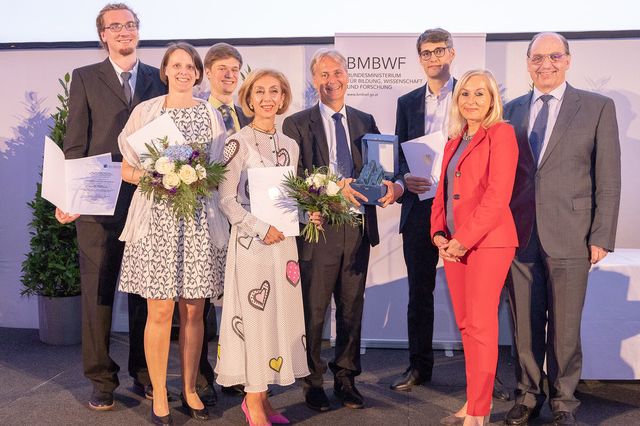
The project (compulsory optional subject - Block 27), which was developed at the Medical University of Vienna (Department of Cardiology IM II, Department of Anatomy) in cooperation with 123sonography.com, shows how this can be successfully implemented with the help of a blended learning concept. For this purpose, high-quality instructional videos were produced with an optimised didactic concept (2-hour teaching content) and 210 students were offered well-structured ultrasound training in small groups (5 per group). The videos demonstrate the technique of ultrasound and its examination and impart basic anatomical knowledge using living donors and prepared heart models. In addition to university supervisors, student tutors were also used for the practical exercises. Finally, an online examination was held.
The motivation among the students was high and led to a rapid learning of theoretical and practical aspects of echocardiography. The success of this project, which is the first of its kind internationally, motivates teachers to continue and further develop this learning unit as a regular course.
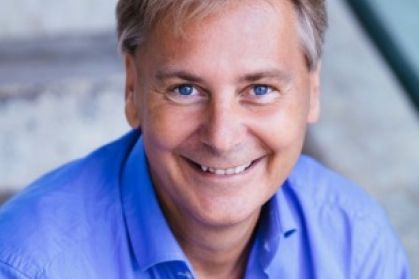
Thomas Binder (Department of medicine II) studied medicine at the Medical University of Vienna and trained as a specialist in internal medicine and as an additional subject, in cardiology at the I. Medical University Hospital Vienna/AKH, in the rehabilitation centre in Bad Tatzmannsdorf, in the Military hospital Stammersdorf/ Vienna, at the Hospital Hietzing (formerly Lainz), at the Internal Medicine II, Cardiology Department, University Hospital for Vienna / AKH and in the Loma Linda Hospital California/USA.
His research focus lies in the field of imaging procedures in cardiology and in particular cardiac ultrasound (echocardiography). His research activities brought him to the Huntington Memorial Research Institute in Pasadena, California. In his scientific role he is the author of numerous professional articles in national and international journals and book contributions.
He obtained his post-doctoral qualification and additional specialist diploma from the European Society of Cardiology (ECS) in 2000 and has been senior physician and head of the cardiac ultrasound laboratory in the Department of Cardiology at the Clinic for Internal Medicine II (AKH) since 2000. Thomas Binder is a member of the “Echocardiography” working group of the Austrian Society of Cardiology (ÖKG) and was its chairman from 2007 to 2010. He is deputy editor of the “European Heart Journal for Cardiovascular Imaging” and editorial board member of the Hamdan Medical Journal / Dubai.
Another focus of his work is the further education and training of cardiologists. In this capacity Thomas Binder holds numerous courses and seminars at home and abroad and operates an e-learning platform for echocardiography (http://www.123sonography.com). He is also a founding member and secretary of the European Cardiology Section Foundation (ECSF) and secretary of the European Board for Accreditation in Cardiology (EBAC) and the Cardiology Section of the Union Européenne des Médicins Spécialistes (UEMS).
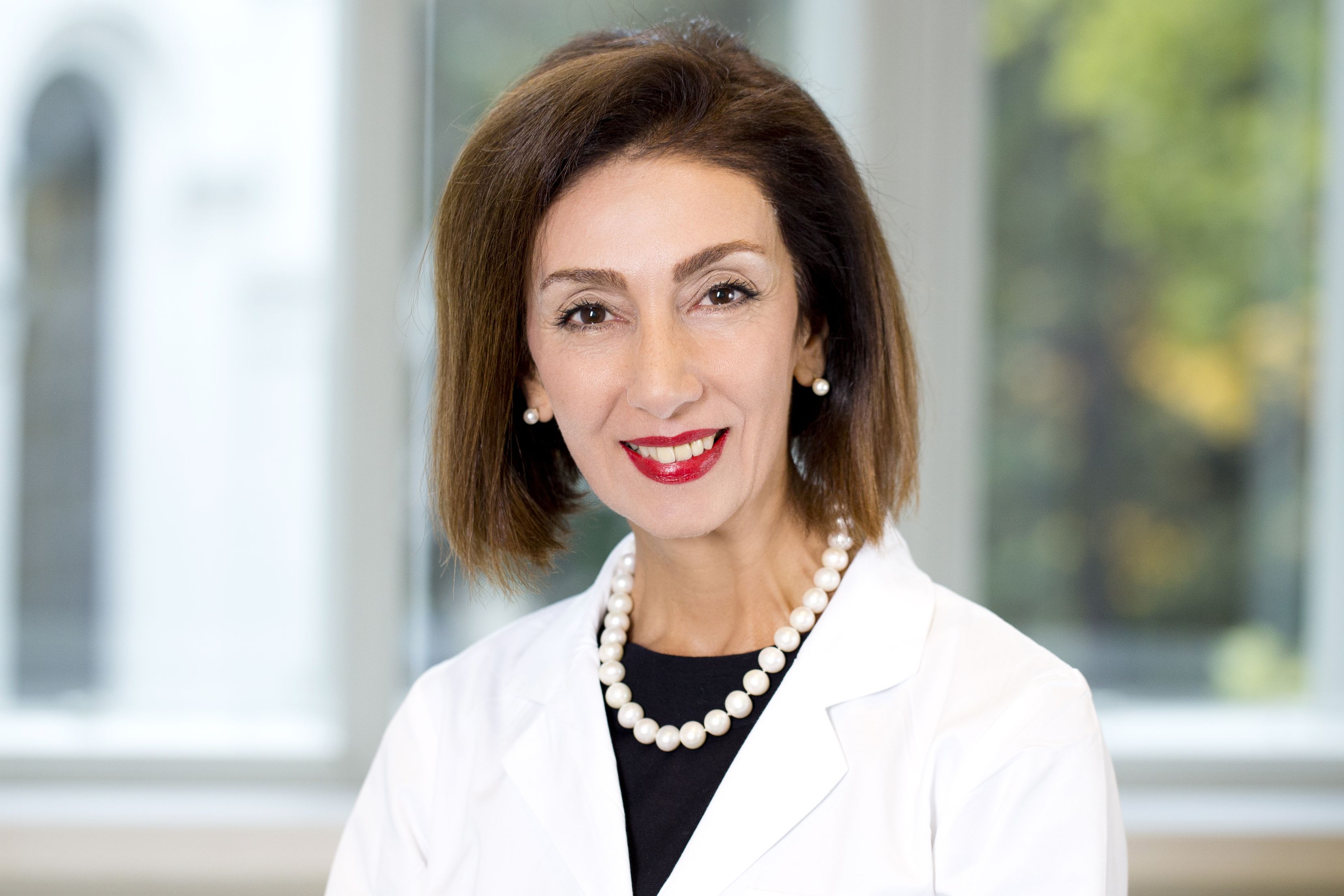
Anahit Anvari-Pirsch (Department of Medicine II) received her doctorate in 1988 from the Medical Faculty of the University of Vienna and has been a specialist in internal medicine since 1994 as well as an additive specialist in cardiology since 1997. She received a post-doctoral qualification in 2001 and is Associate Professor and Senior Physician at the Department of Medicine II/Cardiology at the Vienna General Hospital/Medical University with a focus on general conservative cardiology and cardiac arrhythmias.
Since 2008, she has been coordinating all aspects of teaching in internal medicine/cardiology and is the tertial coordinator and year coordinator of the clinical-practical year in the 6th academic year. In this role she dedicates herself to innovative teaching methods with a special focus on the (further) development of clinical-practical competencies. Since October 2015 Anvari-Pirsch has been deputy curriculum director of human medicine at the Medical University of Vienna.
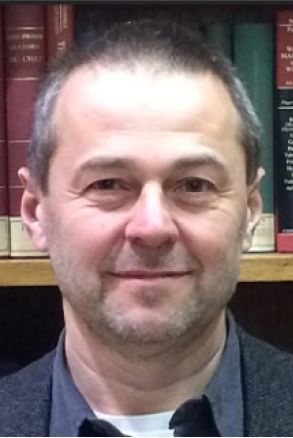
Wolfgang J. Weninger (Division of Anatomy) studied human medicine at the University of Vienna and received his doctorate in 1995 as Dr.med.univ. In the same year he accepted an assistant position at the Institute of Anatomy. In 2000 Weninger spent about a year at the National Institute for Medical Research in Mill Hill (Crick Institute, London). Together with Tim Mohun, he developed and patented methods for the three-dimensional visualisation of embryos and biopsy materials. Back in Vienna, Weninger completed a post-doctorate in anatomy in 2002. In 2003 he completed his training as a specialist in anatomy. In 2014 he was awarded the title of university professor and in 2015 the title of honorary professor (FH, IMC Krems). Since 2016 he has headed the Department of Anatomy at the Medical University of Vienna.
Wolfgang Weninger is the author of more than 80 scientific publications, most of them in top scientific journals. He is block and line coordinator, coordinator and lecturer of internships and lectures as well as coordinator and teacher in the postgraduate education sector of the Medical University of Vienna. He also organises and teaches hands-on internships and lectures at several universities of applied sciences. Weninger is also the publisher and author of learning materials, book chapters and educational books.
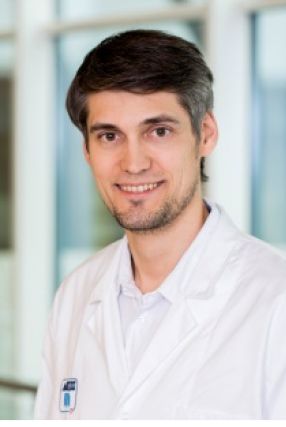
Matthias Schneider (Department of Medicine II) studied medicine at the University of Hamburg. He then completed specialist training in internal medicine at the Potsdam Clinic. Schneider has been working at the Vienna General Hospital since 2015. In 2017 he received a medical specialist diploma in internal medicine. He is currently expanding his medical knowledge with additional training in cardiology at the Department of Medicine II of MedUni Vienna/AKH Vienna.
Studies abroad, also as part of longer exchange programs, brought him to the USA and China. He is also interested in traditional Chinese medicine. Schneider completed a master's degree in this field at the Medical University of Vienna. He is also fluent in Mandarin.
Since 2015 Matthias Schneider has been working scientifically on echocardiography and in particular on the imaging of the right ventricle.
Together with Thomas Binder, Matthias Schneider is committed to the training and further education of students in the field of echocardiography.
On the shortlist: “Interdisciplinary Case Conferences – Compact“
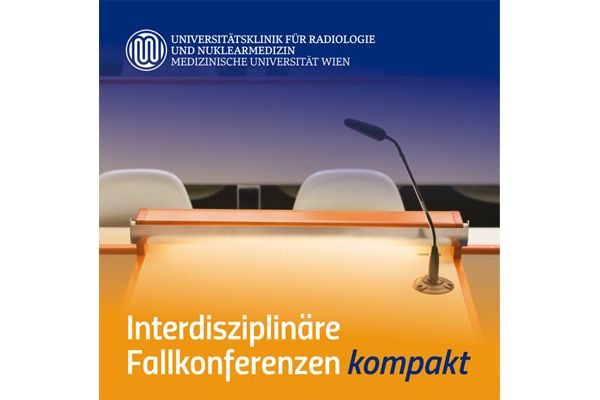
The project “Interdisciplinary Case Conferences – Compact” of MedUni Vienna (Department of Biomedical Imaging and Image-guided Therapy) was nominated for the shortlist in the same category. Nominated were Andrea Praschinger, Philipp Pavelka (both from the Teaching Center) and the medical student Florian Simon Linke.
It is essential for practical work as a doctor that information about patients is collected to the extent that correct conclusions can be drawn and diagnostic and therapeutic actions proposed or taken in a target-oriented manner.
The established compulsory course “Interdisciplinary Case Conferences” (led by Georgios Karanikas, accompanied by Franz Kainberger) in the 5th academic year prepares students for this challenge for one year. The clinical thinking of the students is stimulated by weekly, interactive case discussions. In order to support the students in their subsequent learning, selected, presented cases are dealt with on the Basis of specific topics and made available as compact audio files (podcasts). This offer is supplemented by literature references and corresponding self-assessment tasks, which are offered as playful interactive puzzles via the Moodle learning platform.
The students benefit from this offer, as the course held in a classical teaching setting is combined with new forms of media. With the podcasts, the learning time can be separated from the traditional knowledge acquisition acquired while sitting. In addition, review tools tailored to the essential learning objectives are offered, which, taken together, results in mobile micro e-learning.
Philipp Pavelka and Andrea Praschinger are responsible for the framework conditions as well as the development of didactic and content elements of the podcasts project as part of the Interdisciplinary Case Conferences course. Furthermore, quality assurance measures are taken on an ongoing basis.
Florian Simon Linke is a sixth year medical student and will soon complete his clinical practical year. He was a tutor at the Interdisciplinary Case Conferences course at the Department of Biomedical Imaging and Image-guided Therapy for the third year in a row. He is responsible for the conception, the preparation of the contributions and the technical processing and development of the project.
About the Ars Docendi State Prize
Comprehensive higher education is the key factor in developing the knowledge and skills needed in a modern knowledge society. The Ars Docendi State Prize thus aims to emphasise the importance of teaching at Austrian universities in the science system and to support the associated quality development of teaching as a whole. In a joint initiative of the Federal Ministry of Education, Science and Research, the Austrian University Conference, the Austrian University of Applied Sciences Conference, the Austrian Private Universities Conference and the Austrian Student Union, the Austrian State Prize for excellent teaching at Austrian universities, universities of applied sciences and private universities was awarded this year in five categories.